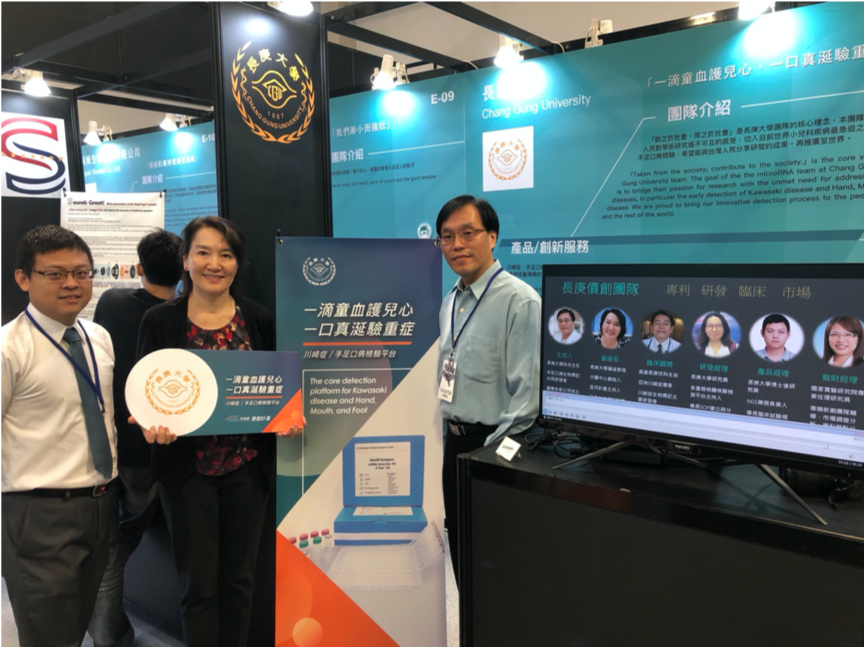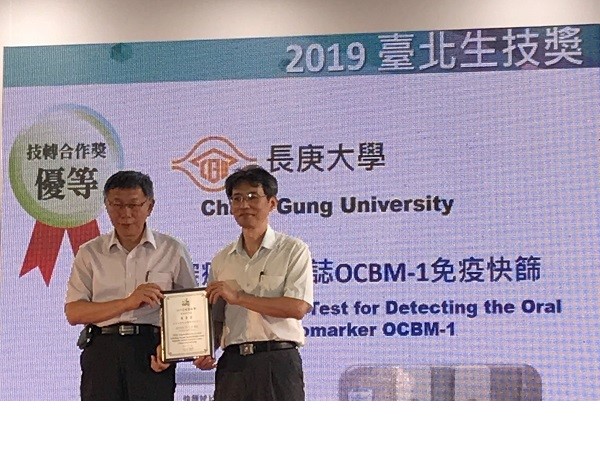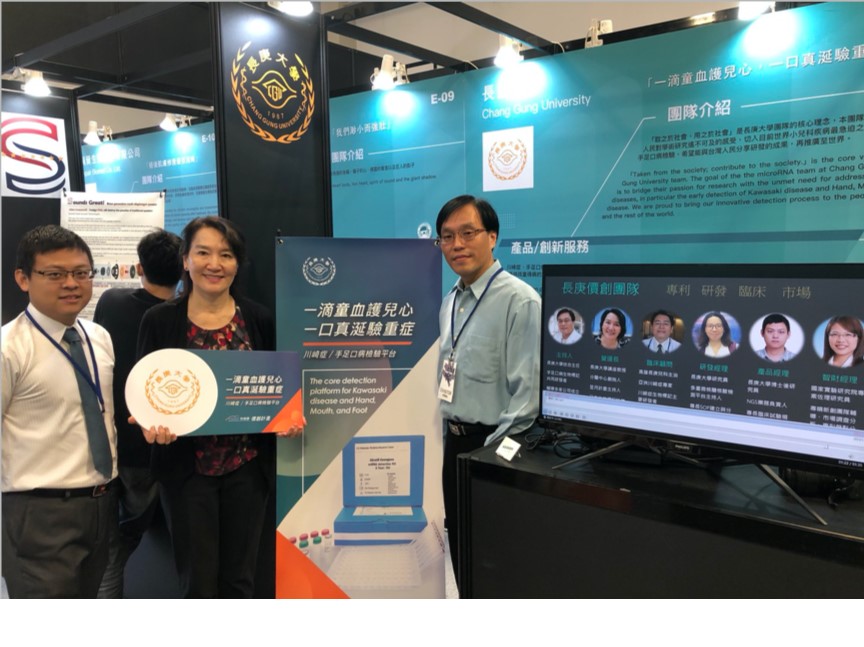Industrial Value Creation Program for Academia
Members of The multiplexed microRNA core in the Molecular Medicine Research Center (MMRC) and Professor Robert YL Wang, Department of Biomedical Sciences have been awarded with an “Industrial Value Creation Program for Academia” grant from Ministry of Science and Technology, Taiwan. The team as one of the four grantees in the biomedical field aims to develop clinical applicable miRNA-based products for early detection of Kawasaki disease and the Hand, Mouth and Foot diseases, respectively.
Kawasaki disease is an autoimmune disease preferentially attacking children younger than 5 years old. Early and successful detection within the first 6 days of fever onset is critical for disease treatment. If left untreated, almost 20% to 25% of the patients with KD may develop severe coronary artery aneurysms, making KD the leading cause of acquired heart disease in young children. For the Hand, Mouth, and Foot diseases (caused by several small RNA viruses), early detection in saliva samples of children can minimize the spreading of infection and unnecessary suspension of classes. To date, no molecular diagnosis methods for either Kawasaki disease or the Hand, Mouth, and Foot diseases are available for clinical usage. Thus, these products will provide an opportunity for early diagnosis and treatment. To meet the urgent need in early detection and clinical management of respective diseases as well as before the availability of IVD products, we plan to move into the market with Laboratory Detection Test (LDT).
Besides Professor Robert YL Wang who is the principal investigator and research experts in the Hand, Mouth, and Foot diseases, the members in MMRC including Professor Yu-Sun Chang, Dr. Chia-Chun Chen (Research faculty) and Dr. Tian-Hsiang Ma Ma (a postdoctoral fellow) as well as Professor Eric Ho-Chang Kuo, Director of the Chang Gung Kawasaki Center at Kaoshuang Chang Gung Memorial Hospital are co-investigators. The miRNA team led by Dr. Chia-Chun Chen in the MMRC developed and optimized a multiplexed RT-PCR detection platform, which can concurrently quantify 46 miRNAs in small amount of clinical samples. The in-house built technologies covering the standard of operation (SOP) for various types of clinical samples (tissues, blood, stool, saliva) and relevant diseases include standardization of pre-treatment procedures, miRNA purification strategies, in-house Primer/Probe design, stability tests among sample batches, and algorithms for miRNA detection. Since MMRC has developed multiple platforms for cancer biomarker detection, the miRNA platform indeed proved its value to extend our effort to successfully detect diseases other than cancers.
As noted, the goal of the“Industrial Value Creation Program for Academia” grant is to promote the Research-Industry connection and to provide an opportunity for the university faculty to link their research findings to industry. Therefore, the ultimate goal of this program is to found a start-up company, which can raise money to complete the process following the guidelines for the registration of In Vitro Diagnosis Medical Device before clinical application.



